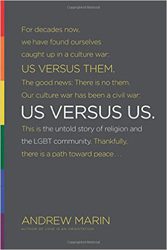The Adventurous Lectionary for September 8, 2013
Sacrifice and Artistry: Human and Divine
Today’s passages require careful theological navigation. They have often been interpreted to justify the violence of divine omnipotence and a divine omniscience that fully determines the details of our lives from conception to death. Moreover, they have been interpreted in ways that polarize God and the world. We cannot deny the hard sayings of scripture nor should we render them irrelevant by discounting their challenge to our customary way of life. Still, as we look for truth in them, we must follow Jeremiah’s vision of the divine potter, working contextually with the congregation we have – its limits and possibilities – to create something of beauty.
Jeremiah 18 describes God’s activity in the world as artistic in nature. God has a vision, works with materials that have their own integrity, and must adjust to the characteristics of the “clay” with which God works. While the passage can be interpreted in ways that focus on God’s control over the clay – building and destroying nations just as a potter shapes clay prior to firing it – the passage also can be interpreted as saying that God’s work in the world is profoundly concrete and enhanced or limited by the inherent characteristics of the clay. When the nation and its people are attentive to God, God can do great things and invite the nation to flourish in new and creative ways. If the nation or person turns from God, God continues to work but with a more limited set of possibilities.
The Psalmist also describes a creative give and take between God and human beings. God searches us and knows us fully; we are always the subjects of divine care, action, and awareness. We are known by God utterly and completely, and God’s intimate knowledge is the ground for God’s movements in our lives. God never works with abstractions but with concrete persons, communities, and situations. Accordingly, as we change, God’s experience of the world also changes. As we open to God, we provide God with new possibilities for shaping the world. Still, the key element is God’s intimate awareness of our lives: we are known and we are loved by a Presence that seeks goodness for us and the world.
The Letter to Philemon has inspired a variety of responses from ancient and contemporary interpreters. The author, perhaps the apostle Paul, is painfully aware of the realities of first century slavery. Still, he does not explicitly challenge the social order. We might fault Paul’s failure to draw a line in the sand regarding slavery; but we need to remember that neither Paul nor the Christian community had any political power. Perhaps, a subtler more relational approach is necessary, given Paul’s social and political limitations. Onesimus, Philemon’s slave, has no inherent rights except those given by his owner. Paul wants him to go free, but feels he must act relationally and persuasively rather than unilaterally. He is calling Philemon to a transformed imagination – to see Onesimus as a beloved child of God and not an object to be owned.
Paul is seeking to be a theological artist, seeking to transform Philemon’s perspective by persuasion, rather than coercion. Paul calls Philemon to become a person of stature, to embrace a larger vision of his social context in which all people are God’s beloved children, worthy of affirmation. As members of the body of Christ, Philemon and Onesimus are equals, deserving freedom in both the church and the world. While the Letter to Philemon appears modest compared to the complexities and insights of the Letters to the Romans, Corinthians, Galatians, Ephesians, and Philippians, its presence in the canon may have served as a constant reminder that inequalities in the body of Christ are destructive and that God is present in slave and owner alike. The example of Paul’s relationship with Philemon may have inspired others to challenge slavery as contrary to the radical hospitality of Jesus.
The passage from Luke 14, taken literally, has little to offer most North American congregants; it is simply too far from their current lives and visions of social and personal responsibility. In many ways, the Lukan passage reflects a form of theological hyperbole that presents an impossible possibility as a way of turning upside our typical vision of reality. While virtually none of our congregants will choose to “hate” his family or give up all her possessions, this passage invites us to examine our lives: Are our relationships healthy and affirmative of our relationship to God? Are we “possessed” by our possessions, stressed out in our quest for the comforts promised by the American dream? What crosses are we called to carry – and what sacrifices are we challenged to make – to be faithful to God’s realm?
The adventurous pastor does not need to let his or her congregant’s off the hook. We need to recognize that our choices have serious consequences for us and the world around us. We don’t need to polarize our love of God and love of the world. To love the world rightly we need to place God at the center of our lives; conversely, we love God best by bringing beauty and joy to the world. Still, having a somewhat uneasy conscience – no doubt, one of Paul’s hopes for Philemon – can motivate us to challenge our assumptions in light of God’s vision of Shalom. In God’s realm of Shalom, we are also invited to be artists who join God in bringing healing to the concrete world in which we live. The vision of an impossible ideal can motivate us to seek the most realistic transformation in our current situation.













